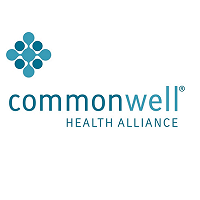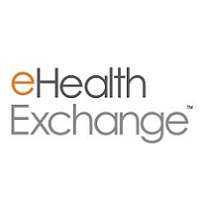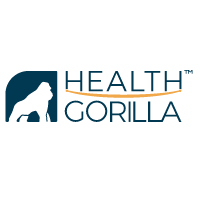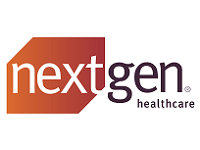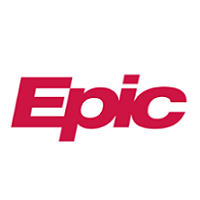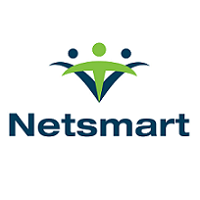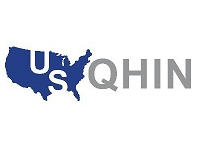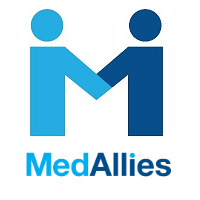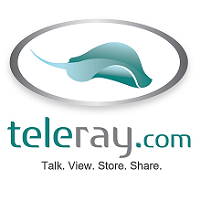We have now past the 19 year mark in our quest for healthcare interoperability. Under an executive order from president G W Bush, the ONC was established and Dr. David Brailer was dubbed “America’s first Health Information Czar.” The Meaningful Use program was then born out of the HITECH Act and Merit-Based Incentive Payment System was then born our of the MACRA legislation. And then information sharing from the CURES Act. And now the release of Trusted Exchange Framework and the Common Agreement (TEFCA). All trying to move our healthcare system to the digital age, better outcomes, controlling and reducing costs, and patient access to their health data. It has not been an easy road and the debate of the journey will never end.
TEFCA News
Micky Tripathi on Tell Me Where IT Hurts
ONC Micky Tripathi, PhD, MPP. updates us on the progress the ONC has made this year. He discusses where we are with information blocking, the complexities of information blocking penalties, USCDI, and TEFCA.
RCE Monthly Informational Call
Tuesday, January 17 | 12:00 p.m. – 1:00 p.m. ET
The Recognized Coordinating Entity (RCE) hosts a public informational call as an opportunity to share information about the progress to-date on the third Tuesday of each month. View previous calls.
Register Here
Spotlight on Community Networks
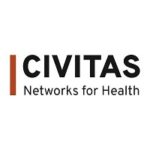 The Network for Regional Healthcare Improvement (NRHI) and the Strategic Health Information Exchange Collaborative (SHIEC) announced a formal affiliation between the two organizations to form a new organization named Civitas Networks for Health. The organization serves as a platform for local nonprofit health collaboratives and health information exchanges to grow and thrive. Follow them @civitas4health.
The Network for Regional Healthcare Improvement (NRHI) and the Strategic Health Information Exchange Collaborative (SHIEC) announced a formal affiliation between the two organizations to form a new organization named Civitas Networks for Health. The organization serves as a platform for local nonprofit health collaboratives and health information exchanges to grow and thrive. Follow them @civitas4health.
Civitas News
Collaboratives in Action: Health Data Partnerships for Public Health Improvement Webinar
Hosted by Civitas Networks for Health, featured from Colorado Community Managed Care Network (CCMCN), Colorado Department of Public Health and Environment (CDPHE), the Association of Immunization Managers (AIM), the American Immunization Registry Association (AIRA), and the Association of State and Territorial Health Officials (ASTHO), discussing their work on the Office of the National Coordinator for Health Information Technology (ONC) Immunization Data Exchange, Advancement and Sharing (IDEAS) program. View the recording.
The Network has continued to grow throughout its’ inaugural year. They have welcomed 14 additional new members since the last update on membership growth in May.
State HIE News
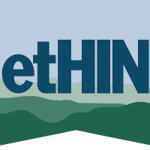 East Tennessee Health Information Network (etHIN) Selects 4medica to Reduce Duplicate Patient Records
East Tennessee Health Information Network (etHIN) Selects 4medica to Reduce Duplicate Patient Records
4medica® (@4medica), a company in healthcare data quality and matching technology, announced that East Tennessee Health Information Network (etHIN) will deploy 4medica’s cloud-based Data Quality Platform to improve patient matching and health data quality.
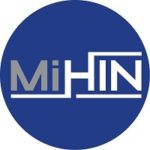 Michigan Health Information Network Once Again Achieves HITRUST Risk-based, 2-year Certification to Manage Risk, Improve Security Posture, and Meet Compliance Requirements
Michigan Health Information Network Once Again Achieves HITRUST Risk-based, 2-year Certification to Manage Risk, Improve Security Posture, and Meet Compliance Requirements
The Michigan Health Information Network (@MiHIN), Michigan’s state-designated entity for the technical, legal, secure, and private exchange of health information, announced it has once again earned Certified status for information security by HITRUST, covering the following scope:
Industry and Contract News
Mirth Connect by NextGen Healthcare Receives ONC Health IT Cures Update Certification
NextGen Healthcare, Inc. (@nextgen), a provider of innovative, cloud-based healthcare technology solutions, announced its clinical data exchange solution, Mirth® Connect, has achieved the Office of the National Coordinator for Health Information Technology (ONC Health IT) 2015 Edition Cures Update certification.
eHealth Exchange
Surpasses 1.35 Billion Monthly Transactions Milestone, Representing a Major Milestone in Health Information Sharing
The eHealth Exchange, one of the nation’s largest health information networks connecting federal agencies and healthcare providers, recently reached a major milestone as the eHealth Exchange Hub platform began processing 1.35 billion inbound information requests per month.
Annual Meeting Recordings
The Annual Meeting was held in December in Washington DC. They have released the recordings of the day’s speakers.
Participation Intentions
Virginia Health Information (VHI), the Commonwealth’s non-profit health data organization, intends to participate in eHealth Exchange’s anticipated Qualified Health Information Network (QHIN) through its statewide Health Information Exchange (HIE) ConnectVirginia. eHealth Exchange is planning to undergo the application process to serve as a QHIN under the Office of the National Coordinator for Health IT’s (ONC’s) Trusted Exchange Framework and Common Agreement (TEFCA).
Over 100 Hospitals Now Directly Connected and Live on HIETexas EDEN Network
The Texas Health Services Authority (@thsa_healthIT), in partnership with PointClickCare Technologies (@pointclickcare), a healthcare technology platform enabling meaningful collaboration and access to real‐time insights, have expanded the EDEN network to include over 100 Texas facilities directly contributing encounter notification data.
Hires and Openings
NYeC – New York eHealth Collaborative
New York eHealth Collaborative (NYeC) is a not-for-profit organization working in partnership with the New York State Department of Health to improve healthcare by collaboratively leading, connecting, and integrating health information exchange across the State. They have openings for the following positions:
Mountain-Pacific Quality Health
Chief Executive Officer – Mountain-Pacific Quality Health, headquartered in Helena, Montana, is seeking a dynamic, distinguished executive to serve as its next Chief Executive Officer. This is an exciting opportunity to lead a progressive and forward thinking Quality Improvement Organization, serving one of the largest geographic footprints in the country. Under the direction of the Centers for Medicare & Medicaid Services (CMS), Mountain-Pacific Quality Health is the Quality Innovation Network-Quality Improvement Organization (QIN-QIO) for Montana, Wyoming, Hawaii, Alaska and the U.S. Pacific Territories of Guam and American Samoa and the Commonwealth of the Northern Mariana Islands.
Civitas is Hiring!
Development Manager – Civitas has identified a need for a full-time Development Manager to assist the organization in both maintaining and growing funding while increasing membership.
The ideal candidate will have a working knowledge of the non-profit sector, member-based organizations/associations, grant acquisition and management, and project-based funding.
Reporting to the Senior Director, Business Development and Programs, the Development Manager will assist the organization in developing diverse and ongoing sources of financial support while managing and developing relationships with funders and sponsors. As membership development is essential to the long-term growth of the organization, the Development Manager will also develop and oversee membership recruitment and retention strategies.
ONC's Cures Act Final Rule
In May of 2020 the 21st Century Cures Act: Interoperability, Information Blocking, and the ONC Health IT Certification Program released by the ONC and published in the Federal Register. Here is a quick timeline.
Certification
- 6/30/20 – General Effective Date
- 4/5/21 – Compliance requirements start for information blocking, assurance, and API
- 4/5/21 – HIT developers prohibited from restricting certain communications
- 12/15/21 – Submit initial real world testing plans
- 4/1/22 – 1st attestation to conditions of Cert required
- 12/31/22 – New HL7 FHIR API capability and other update criteria must be made available
- 3/15/23 – Submit initial real world testing results
- 12/31/23 – EHI export capability must be made available
The TEFCA Players
ONC Recognized Coordinating Entity (RCE)
 The Recognized Coordinating Entity (RCE) is responsible for developing, implementing, and maintaining the Common Agreement component of the Trusted Exchange Framework and Common Agreement (TEFCA). The Common Agreement is the baseline technical and legal requirements for health information networks to share electronic health information and is part of the 21st Century Cures Act (Cures Act).
The Recognized Coordinating Entity (RCE) is responsible for developing, implementing, and maintaining the Common Agreement component of the Trusted Exchange Framework and Common Agreement (TEFCA). The Common Agreement is the baseline technical and legal requirements for health information networks to share electronic health information and is part of the 21st Century Cures Act (Cures Act).
In addition they will collaborate with ONC to designate and monitor Qualified Health Information Networks (QHIN), modify and update an accompanying QHIN Technical Framework, engage with stakeholders through virtual public listening sessions, adjudicate noncompliance with the Common Agreement, and propose sustainability strategies to support TEFCA beyond the cooperative agreement’s period of performance.
2022 TEFCA Timeline
The published timeline from the Sequoia Project had designation of QHINs in 2022 4th quarter. As of October 3, 2022 QHIN Application was open. No announcements on designations have been made public.
RCE Releases TEFCA Facilitated FHIR IG Draft 2, and Updated Versions of QHIN Onboarding & Designation SOP and QHIN Application
- TEFCA Facilitated FHIR Implementation Guide, Draft 2 (Pilot Version)
- updated versions of the Qualified Health Information Network (QHIN) Onboarding & Designation Standard Operating Procedure (SOP)
- QHIN Application for stakeholder feedback.
QHIN Contenders
Interoperability Market
According to Allied Market Research, the healthcare interoperability solutions market size was valued at $5,320.0 million in 2020, and is expected to reach $21,544.6 million by 2030, registering a CAGR of 14.9% from 2021 to 2030. Interoperability in healthcare refers to timely and secure access, integration and use of electronic health data so that it can be used to optimize health outcomes for individuals and populations. As populations around the world age and people live longer, interoperability and data sharing are going to become increasingly critical for delivering effective healthcare. Interoperability is the ability of two or more systems to exchange health information and use the information once it is received.
According to the report published by Fior Markets, the global healthcare data interoperability market is expected to grow from USD 2.83 billion in 2020 and to reach USD 5.80 billion by 2028, growing at a CAGR of 9.38% during the forecast period 2021-2028. The primary reasons driving healthcare interoperability market growth include a growing focus on patient care, a growing need to tighten healthcare costs, and government measures to improve patient experience of treatment. System interoperability, information interchange, and data availability are all important factors in improving health outcomes. Individual health data is mobilized throughout the whole range of care providers in health organizations, enabling coordinated, safe, and high-quality treatment that supports payment reforms, transparency efforts, and individuals’ ability to control their health.

